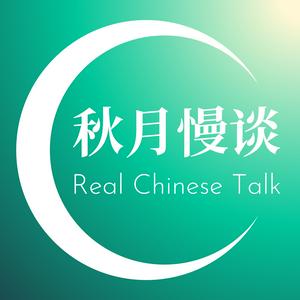2025 is over! I used the week off after Christmas to look back on 2025 and make plans for 2026.
I’d give my 2025 an 8 out of 10. What score would you give your own 2025?
00:31 A week off after Christmas spent staying at home
01:29 Reflecting on 2025 and planning for 2026
02:14 Three principles for making plans
05:56 Language-learning progress in 2025 and language plans for 2026
08:25 2025 as a year of “doing less”
10:09 Changes brought about by Stoicism
13:50 The best thing that happened in 2025: starting to learn music
16:27 Realizing my strengths and learning preferences in 2025
2025结束了!我用圣诞节后的假期,回顾了2025年并制定了2026年的计划。
我给自己的2025打8分(10分满分)!你给自己的2025年打几分呢?
00:31 留在家的圣诞节后的一周假期
01:29 回顾2025、规划2026
02:14 制定计划的三个原则
05:56 2025语言学习进步及2026语言计划
08:25 2025是做减法的一年
10:09 斯多葛主义带来的改变
13:50 2025发生的最好的事情:开始学习音乐
16:27 2025意识到自己的优势与学习偏好
------------------------------------
I'm Qiuyue 秋月, a native Chinese speaker who speaks multiple languages and works in tech and the creative industry in the Netherlands.
In 秋月慢谈, I talk about language learning, personal life, productivity, culture, and technology, using authentic, slow, and clear Chinese.
My goal is to give you Chinese comprehensive input of interesting and relevant content.
-------------------------------------
In the latest newsletter, I introduced a very interesting and extremely common way of expressing meaning in Chinese – the numeric expressions.
Interested in more Chinese content beyond the podcast and the video? Subscribe to the newsletter at https://www.realchinesetalk.nl/
The newsletter is available in both Chinese and English, making it a great read practice for you!
-------------------------------------
Podcast Video (with bilingual subtitles): https://youtu.be/0mkpLT8QfzI
Additional learning materials: https://www.patreon.com/RealChineseTalk
Support me via Buy Me A Coffee: https://buymeacoffee.com/realchinesetalk
Contact:
[email protected]

